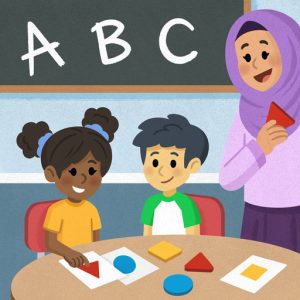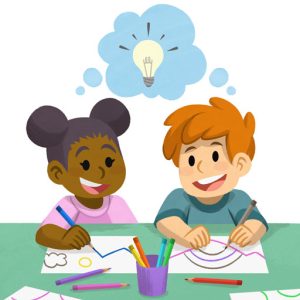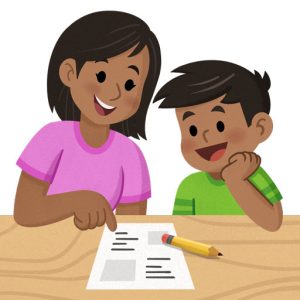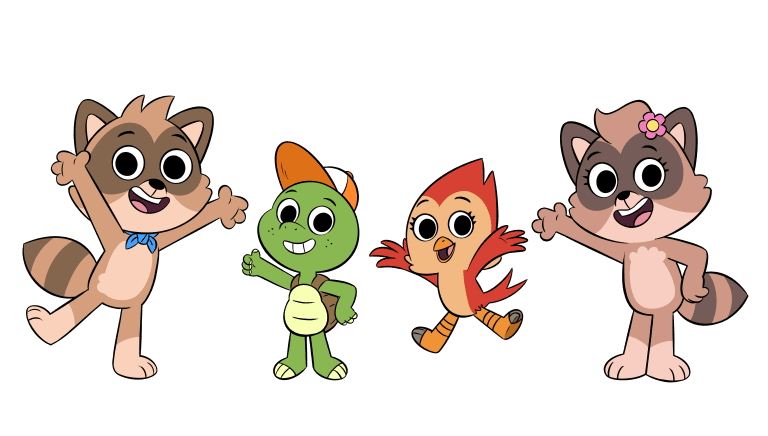Help your child start school strong with fun lessons and activities in reading, math, and science.
Meet Crystal and her daughter Raven, a lively dancer who loves learning through play! To give Raven a strong start in school, Crystal enrolled her in Waterford Upstart. In just minutes a day, Raven is building skills and growing her love for learning.
Watch their story and see how Waterford Upstart helps kids start school with confidence and joy!
Waterford Upstart is an interactive learning program that helps children in PreK-2nd grade build strong skills in reading, math, and science. With activities that adapt to your child’s skill level, children learn at just the right pace, with fun songs, stories, and games that make learning exciting.
You’ll receive our full support, including coaching, a library of resources in English and Spanish, translation services, and if needed, a computer and internet access for eligible families.
Our education experts created Waterford Upstart based on how young children learn best.
And the results speak for themselves—more than 70 studies prove it really works!

Fun lessons for kids in reading, math, and science—with characters, stories, and songs.

Tailored learning that adjusts to each child’s skills and needs.

Support from skilled educators who can help families accomplish their learning goals.

Children develop learning routines and positive mindset skills.
of children started
kindergarten a full year ahead
children served by Waterford each year
of families recommend
Waterford Upstart
years of early learning proven outcomes
Your child will enjoy fun, interactive lessons that adjust to their skill level, building confidence and understanding in reading, math, and science for a strong foundation in school.
With a little practice, your child will build a solid learning routine in core school subjects with Waterford Upstart. We recommend 15 minutes per day for the reading section, and 15 minutes for the math and science section, five days a week.
Thanks to generous funders, Waterford Upstart costs nothing for families who qualify. If needed, you may also receive a computer and wifi, making access even easier.
Program availability and eligibility are set by our funding partners. To find out if Waterford Upstart is available in your area, fill out the form below.
Fill out the form to see if Waterford Upstart is available in your area. There is no cost to families who qualify!
If Waterford Upstart isn’t available to you at this time, you’ll still have access to our extensive library of learning resources and will be notified when a program becomes available.


After you fill out the form, you’ll access information on available programs in your area, and whether your child qualifies for the program. If there’s not a program you qualify for in your state, you may access Waterford’s library of digital books and resources in English and Spanish.
Waterford Upstart costs nothing for families who qualify. Our funding partners cover program costs for a state or region and set eligibility requirements for that location. Eligible families may also receive a computer and Wi-Fi for the program.
Waterford Upstart has a reading section and a math and science section. The reading lessons teach your child the six important skills that are part of learning to read, including: phonological awareness, phonics, reading fluency, reading comprehension and vocabulary, language concepts, and communication.
If your child uses the math and science curriculum, they will learn basic math and science skills to prepare them for school. These include numbers and operations, algebraic thinking, measurement and data, geometry, and science.
Your child will also develop mindset skills to foster a positive attitude, growth mindset, self-regulation, and empathy for others.
You can view the skills taught in the program here. Waterford Upstart is also fully aligned with the education standards of all U.S. states and Washington, D.C. To learn more, click here.
Waterford Upstart is a personalized program that adjusts to what your child knows. Your child will spend more time on the skills they need most to prepare them for kindergarten.
In the beginning, your child will need some help learning how to use the program independently. You’ll be amazed how quickly they can use it by themselves.
When using the program, let your child answer the questions on their own. That way, the Waterford Upstart software can assign lessons personalized to what your child is ready to learn.
If your child is stuck during an activity, suggest that they pick their best guess or favorite answer. Do not give them the correct answer or any hints.
Waterford provides families with resources and access to skilled educators who can coach families as they accomplish their learning goals. Your coach can help you create a routine, use resources available in the program, and offer tips for guiding your child to do their best.
To check your child’s progress and daily usage, go to upstart.waterford.org and check the Dashboard tab. The Resources & Activities tab has digital books and activities in English and Spanish that you can do with your child.
Most computers are compatible. Check compatibility.
Yes. Waterford Upstart is an adaptive curriculum, which means it responds to each child’s learning needs as they use the program. Waterford has earned the endorsement of the Council of Administrators of Special Education (CASE) as a program that is effective for special education.
Research shows that the quality of screen time is more important than the quantity of minutes spent using a screen. Interactive content that moves slowly and helps young children learn new information is far more valuable than fast-moving content that children passively watch. Please check out our YouTube channel for examples of some activities in the program.
We recommend 15 minutes per day for the reading section, and 15 minutes for the math and science section, five days a week. This is within the American Academy of Pediatrics’ screen time recommendations for children older than 2 years, which is 60 minutes a day or less of high-quality programming.
To expand access, the Waterford team is open to joint funding efforts to add, expand, and sustain access to this evidence-based program. Contact support@waterford.org or call 888-982-9898 to learn more.
